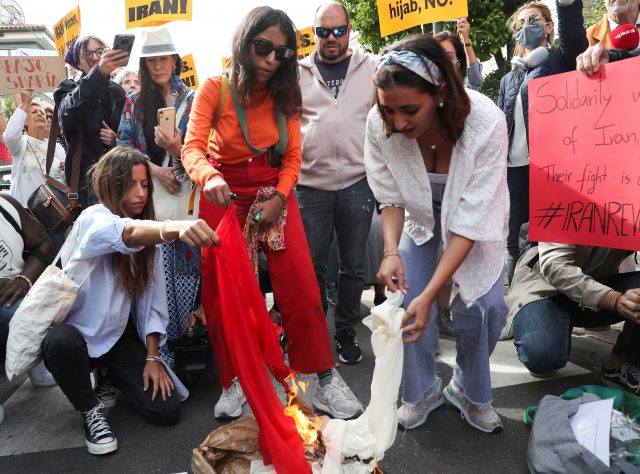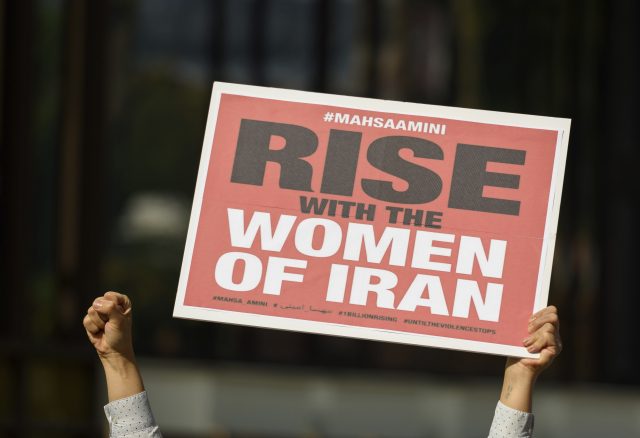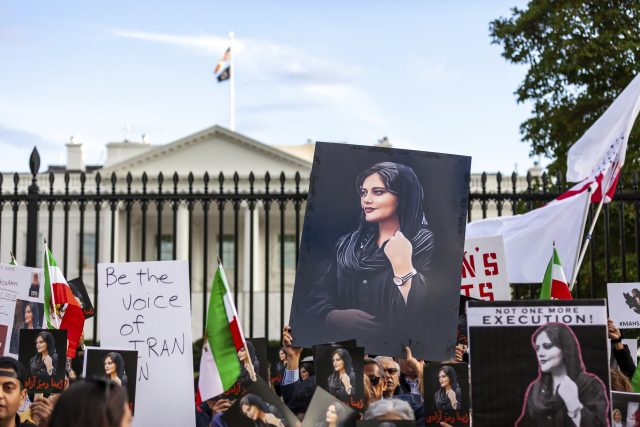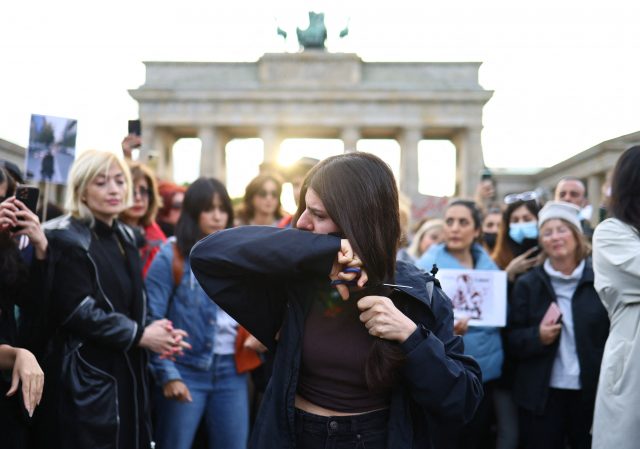
Iran’s Islamic regime is facing significant public protests and shows of outrage over the death of 22-year-old Mahsa Amini. She is believed to have died at the hands of morality police who accused her of violating strict laws requiring head coverings. The incident has gained worldwide attention and spurred demonstrations in numerous countries, as well as intense examination of the gender-based discrimination that permeates everyday life for Iranian women of all strata.
The death of Mahsa Amini has unleashed outrage worldwide over decades of gender-based discrimination in Iran. The subjugation of women there has become a hallmark of the longstanding regime and a pillar of its interpretation of foundational Islamic principles.
Severe restrictions on the economic participation of women are among the many longstanding practices under scrutiny and a focus of calls for change. Women constitute nearly half of Iran’s population of 86 million, yet still comprise only 15% of the total workforce. A very high number of those working women are in rural or underserved communities, and they are the breadwinners for their families. Existing stringent limitations on travel, pay, and property ownership can be devastating.

Iran ranks well below neighboring countries in categories such as the acknowledged right to work (especially after having children) and freedom of movement, according to the latest World Bank report on Women, Business, and the Law. Other constraints cited in the report include the ability to own property, inherit, and start or run a business.
Despite these barriers, there could be promising pathways for change if the right voices are amplified. Educated women and women entrepreneurs exist in higher numbers in Iran than they do in many other Middle Eastern countries, even though Iranian women’s career accomplishments are not highly publicized. And Iranian businesswomen are proven, significant contributors to the country’s billion-dollar digital and online business sector. Many say the “virtual veil” afforded by online commerce yields greater freedom of movement than in other areas of the economy, but the regime is still quick to quell any form of advocacy for women’s rights, economic or otherwise.

The situation of Niloufar Ardalan, the captain of Iran’s indoor soccer (Futsal) national team, brought very public attention to such issues back in 2015. As Ardalan prepared to travel to Malaysia to lead her team in that year’s Asian championship, her husband decided to withhold her passport and deny her lifelong dream. Such actions are authorized in the Islamic Republic’s constitution and happen frequently. Prominent businesswomen inside the country confirm that limits on their movements, including restrictions on traveling internationally for trade and securing loans or credit without the permission of male kin, are among the most significant impediments to their professional efforts.
The urgent need for Iran’s government to address the country’s severe economic downturn provides a small, but real, window of opportunity for prominent women activists and business leaders to push for greater inclusion of women in the national discourse and demand protection of their rights as contributors to the Iranian economy and society. Iran’s independent private sector, including women’s business networks and business associations, can play a leading role in advocating for women’s rights in Iran. These groups can emphasize the vital part that women would play in strengthening the economy if they enjoyed the same freedoms as men, and businesses can use their economic power as leverage to push for broader change.

The magnitude of the current protests in Iran places the Islamic regime firmly at a crossroads. Mahsa Amini’s tragic death has become a symbol of the regime’s attitude towards women. The Islamic regime can demonstrate a respect for women and an acknowledgement of their contributions to society and the economy by removing the obstacles that prevent them from reaching their potential. This act will require a shift in thinking that must be reflected in laws regarding the role of women, including reforms that Iranian officials have long resisted in the name of religion.
And there is precedent—according to experts, the regime has shown flexibility concerning reforms when faced with severe challenges and when survival was at stake. Faced with the severity of Iranians’ anger at institutionalized mistreatment of women in Iran, the regime may find it has no choice but to reform.
Barbara Langley is the Director for CIPE’s Center for Women’s Economic Empowerment, which focuses on democratizing opportunity for women by fostering ecosystems for entrepreneurship. She has worked extensively with marginalized sectors of society including women, youth, and persons with disabilities around the globe.
Babak Yektafar is a Senior Program Officer for CIPE’s Middle East and North Africa programs. Yektafar works on private sector and entrepreneurship ecosystem reform. He has been working on issues including corporate governance, anti-corruption compliance, open data, entrepreneurship, and business agenda development.
Banner image: James Strachan/The Image Bank via Getty Images.
Published Date: September 30, 2022
